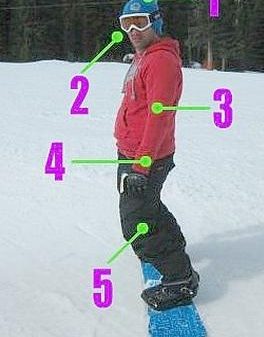Surfing, with its exhilarating rush and deep connection to the ocean, is a sport that captivates many. However, mastering the art of riding waves requires more than just courage and enthusiasm; it demands a finely-tuned sense of balance. Whether you’re a beginner eager to catch your first wave or an experienced surfer looking to refine your skills, improving your balance is key to enhancing your performance and enjoyment in the water. In this article, we’ll explore practical and effective techniques to boost your stability on the board. With dedication and the right approach, you’ll be gliding over the waves with newfound confidence and grace. Let’s dive into the journey of perfecting your balance for surfing and unlocking your full potential on the surfboard.
Mastering Core Strength for Better Stability
To carve those waves with finesse and maintain equilibrium on your board, honing your core muscles is crucial. A strong core not only enhances your surfing performance but also safeguards you against potential injuries. Here are some effective exercises to integrate into your routine:
- Plank Variations: From traditional planks to side planks, these exercises engage multiple muscle groups, building endurance and stability.
- Russian Twists: This dynamic movement targets the obliques, essential for those quick directional changes on the surfboard.
- Bird-Dog: A balance-focused exercise that strengthens the core and improves coordination, crucial for maintaining poise on turbulent waters.
Incorporating these exercises into your weekly regimen will not only enhance your balance but also boost your confidence as you tackle bigger waves. Remember, consistency is key to unlocking your surfing potential!

Enhancing Proprioception Through Targeted Exercises
To truly master the art of surfing, honing your proprioception—your body’s ability to sense its position and movement—is essential. By incorporating targeted exercises into your routine, you can significantly improve your balance and agility on the board. Start with exercises like single-leg stands and balance beam walks, which focus on stabilizing your core and engaging the smaller muscles in your feet and ankles. These exercises help in creating a strong foundation for more complex movements.
Another effective method is to integrate dynamic activities such as bosu ball squats and wobble board exercises. These exercises not only challenge your balance but also mimic the unpredictable nature of the ocean waves. Additionally, consider adding yoga poses like the tree pose and warrior III to your routine, as they enhance your mental focus and body awareness. Remember, consistency is key, and with persistent practice, you’ll notice a remarkable improvement in your surfing balance.

Building Leg Power to Boost Your Surfing Performance
Enhancing leg power is crucial for surfers aiming to carve through waves with agility and control. Strong legs not only support balance but also provide the explosive power needed for quick maneuvers. Incorporate exercises that target your quadriceps, hamstrings, and calves to develop the necessary strength. Squats and lunges are excellent for building foundational power, while plyometric exercises like box jumps can boost your explosive strength. Consistency in training will help translate this power into improved performance on the board.
In addition to strength, focus on exercises that enhance your stability and coordination. Incorporate the following activities into your routine:
- Balance boards: Practice standing on a balance board to simulate the instability of a surfboard.
- Single-leg exercises: Try single-leg deadlifts or single-leg squats to challenge your balance.
- Yoga and Pilates: These practices improve core strength and flexibility, crucial for maintaining balance.
- Resistance bands: Use these for lateral leg movements to build strength and stability.
By dedicating time to these exercises, you’ll find yourself more confident and capable in tackling any wave that comes your way.
Incorporating Balance Boards into Your Training Routine
A balance board is an excellent tool to enhance your surfing skills by targeting core strength, stability, and coordination. Begin by incorporating short sessions, gradually increasing the duration as your confidence builds. Start with simple exercises such as standing on the board with both feet, ensuring your posture remains upright and your knees slightly bent. As you progress, introduce more dynamic movements like shifting your weight from side to side or trying to balance on one foot.
To diversify your routine, consider the following exercises:
- Squats on the board: Engage your core and maintain stability while performing squats to simulate the action of riding waves.
- Plank variations: Hold a plank position with your hands or feet on the board, challenging your balance and core strength.
- Side-to-side lunges: Step from side to side on the board, mimicking the lateral movements you’ll need on the surfboard.
By integrating these exercises into your regimen, you’ll not only improve your balance but also gain the strength and agility needed to excel on the waves. Remember, consistency is key, so make balance board workouts a regular part of your training.










